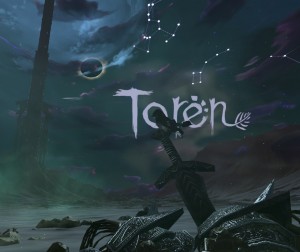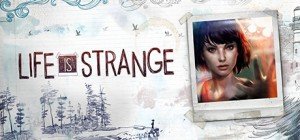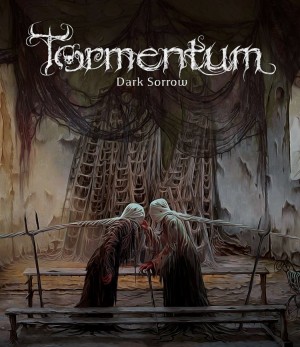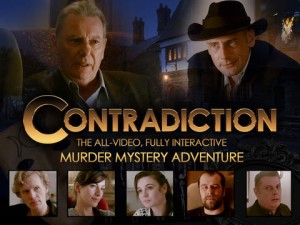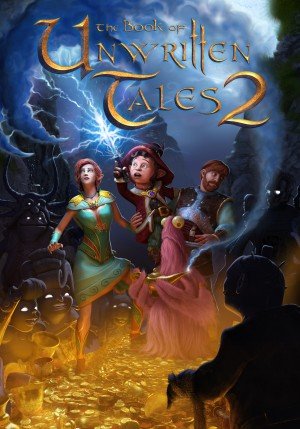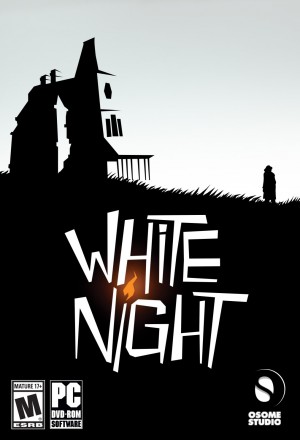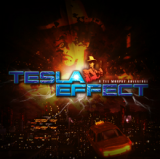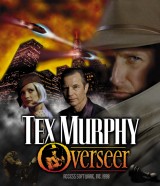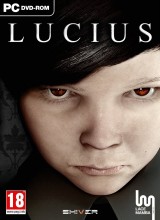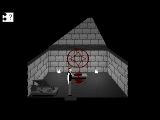Review for Toren page 2
A game could do a lot worse than to be compared to cult-favorite Ico upon its release. Team Ico’s seminal puzzle-platformer may be well over a decade old, but it has stood the test of time and is held in high regard by many dedicated fans. So when indie Brazilian developer Swordtales’ Toren was touted as featuring a similar approach in gameplay and graphics, I had reason to be excited. Instead, I found even more reason to be disappointed, experiencing three hours of tedious mechanics, a perplexingly unintelligible story, and average visuals, further marred by a variety of bugs and poor design decisions that are deserving of frosty reluctance at best.
The idea behind Toren seems initially promising. The game is set in a dreamlike world that is as colorful as it is surreal, and the young protagonist, Moonchild, finds herself on a quest to reach the top of the tower where she was born, to slay the dragon that dwells there. Though Moonchild’s objective is simple, it involves her climbing along the ever-growing tree of life, rising up through the inside of the tower as she incrementally ages from infant to young adulthood along the way. She must also navigate her own dreams, which are full of symbolism.
The whole thing plays out as an allegory, though to what is never made quite clear. Toren is an origin myth of sorts, to explain how the cycle of day and night came to be. When prideful Man built a tower that touched the sky, the sun grew angry and refused to set. Only a girl born in the tower can slay the dragon at the tower’s zenith and restore moonlight to the sky. That makes sense in principle, but the game does not do a good job presenting any sort of backstory or an impetus to go forward. The narrator – the man who raised Moonchild and now guides her from the Great Beyond – communicates exclusively in flowery, roundabout terms, essentially saying nothing at all that can be considered intelligible.
Toren’s narrative structure further suffers from a bad case of plot dyslexia. Nothing seems to gel; pieces of the story are haphazardly thrown at the player, to simply be accepted without any rhyme or reason. The lore may have been left intentionally vague, but ends up coming across as a garbled mess. You’ll learn of Solidor the hero in your dreams, whose connection to the events of the game seems tenuous at best. Then there’s the mysterious character who appears during the game’s climax with no introduction but who is nonetheless vital to your ultimate success. Moonchild’s growth and maturation from swaddled babe to young lady seems an afterthought, without any actual impact on the story or gameplay beyond the cosmetic change of what color wardrobe she is wearing. The list of question marks is extensive, but the characters and story are so poorly fleshed out, you’ll soon find yourself saying to hell with it, let’s just get on with things.
Unfortunately, getting on with things presents its own host of problems. I wish I could use words like “varied”, “engaging”, or even “fun”. But here too Toren is plagued with design choices depleting enjoyment at every turn. In essence, the game is divided into two sections. In the first, the “normal” waking world, Moonchild will run, climb, and hopefully jump her way across gaps to make her way to the top of the tower. With very few exceptions, this is a pretty straightforward task, though once or twice you’ll have to fulfill some sort of task, like lighting torches before you freeze to death or reaching a certain platform within a given time limit. But the jumping is frustratingly inaccurate, and you’ll often miss your landing due to wonky camera angles and finicky timing, and the tower, rather than being a strict up-and-down affair, features creative geography that will have you spending as much time platforming horizontally as vertically.
Then there’s the other half of the game, the dream sections. Oddly, Moonchild abruptly goes to sleep during her perilous quest, sometimes as the result of a hard fall or impact, other times out of the blue and for no reason other than that the narrator said so. These sections are slightly more puzzle-oriented, and could have been challenging given how poorly clued they are. But these sequences are of the puzzle-lite variety, and won’t offer much of a challenge to any but the most novice adventurers. Generally, they involve going somewhere and maybe getting back. In one instance, you’ll need to lead a stag to a sacrificial altar. Another time, you’ll have to navigate over an invisible sky bridge. Other than that, expect more of the same jumping and running you’ve been doing all along, just in much different surroundings.
Going up against a formidable foe like a dragon, who periodically descends from the top of the tower to hinder your progress, naturally requires some sort of weapon, and before long Moonchild will find a blade to aid her on her quest. This allows for an alternative to running around the pesky little critters that show up half a dozen times, though dodging them on foot is remarkably effective. The sword also protects you against the dragon’s petrifying scream, which will turn you to stone if you face it unarmed, sending you back to the last checkpoint. But even armed, some vigilance is still required, as wailing away at the dragon will eventually cause the sword to get knocked from your grasp, leaving you defenseless until you run back and reclaim it. Without your weapon, the petrifying shout can still be dodged by hiding behind statues and walls; similarly, a wind attack which will make you slide backward can easily be countered by clinging onto heavy objects in the environment. Though you face the dragon several times, each encounter follows the same pattern, without variation.
Since Toren requires accurate movements to advance up the tower, dodge attacks and complete the kinetic puzzles of the dreamworld, it’s really a shame that the controls were one of the most painful parts of the game for me. Camera views frequently rotate, then settle in somewhere between side-scroller and isometric 2.5D, making for some very awkward running and jumping angles. As the camera turns, Moonchild turns with it, so keeping a straight bearing is all but impossible. Leaping past platforms to your death, getting caught on edges and corners, missing the mark when trying to interact with an object – these will be your constant companions in Toren. The game warns you up front that a controller is the recommended way to play, and the thumbstick certainly offers a freer and more accurate range of movement than the keyboard-only setup, but the camera is still twitchy when you move and rarely goes where you want it to.
By far, the area where Toren shines the most is its soundtrack. The early stages of the game create a kind of zen feeling: serene strings and soft singing blending into the background, broken up by periods of ambient sounds of wind whistling, flames crackling, and wood creaking. Later on, as the action picks up, so does the score, with pretty-sounding tracks that infuse more vitality and a sense of danger into the experience. There is voice acting, after a fashion, though only by the narrator, whose language is only slightly less intelligible than his convoluted meanings, so you’re fully relying on the subtitles. Then there’s the dragon’s roar, which sounds like an auto-tuned recording of a deflating balloon. Which you’ll be forced to listen to. Repeatedly. For a long time.
Even a strong graphical presentation would likely have been too little to save this game, but what’s on display isn’t overly impressive anyway. The sprawling world of Toren is a magical one, sprinkled with such features as posing statues and pink flora perched precariously along rocky walls, the once-great tower itself an intriguing blend of wood and stone, now being held together by these self-same wooden supports, the giant tree growing up its center acting as a makeshift spine. Unfortunately, the game largely wastes the opportunity to show off its fantastical views and geography, even if only from a distance. There’s a kind of flat look to everything, a sort of lifeless quality that leaves the view a little on the lackluster side. Textures and hair have a distinct last-gen, papier mâché look about them. Backgrounds are often dull and drab, and some odd visual filters purposely obscure details, blurring the edges of the screen during dream sequences.
The game is reasonably colorful but still muted; the palette should be much more vibrant than it is. Outside of the unique dream sequences, which rely heavily on the desert, lava, water, and air level tropes, the standard backdrop often looks as if it’s been captured in mid-sunset, but with far less vibrancy than a real dusk would provide. Warm ochres are replaced by muddy browns, and backgrounds typically consist of sky in exciting shades of gray. The visuals are not unpleasant, but they lack the polish and detail that would really make the setting pop off the screen. The same can be said for the game’s animated cinematics, which are far from bad, but don’t distinguish themselves from the realm of average.
I would be sorely remiss if I didn’t address how buggy my experience with Toren was. Even accounting for basic hardware incompatibilities, there still comes the point when it gets to be a bit much. I suffered game crashes during no less than 20-30% of the game’s load screens, frequently interrupting my progress and causing me to replay entire sections over and over. I also spent a whole dream sequence attempting to walk and platform through an invisible environment, falling into unseen pits and dying again and again. Initially I thought this was some particularly nasty level design (there is, in fact, an invisible part of a level later on), but some quick research proved that the level’s entire floor had simply not loaded properly. I wasted about 30-40 minutes playing through a broken level that was otherwise very playable. Only after another complete game restart did the problem fix itself. Perhaps I just had particularly bad luck with this game, but there are simply too many problems to dismiss: collision issues, objects clipping through each other… there wasn’t a single moment that I felt I was playing a polished, completed piece of software.
I’m not in the habit of being overly critical about a game. I’d like to think that there is some enjoyment in anything, some audience that each game is well suited for. But for the life of me, I can’t honestly bring myself to recommend Toren to anyone. It’s a simple premise awkwardly delivered, overshadowed by poor design and further hamstrung by a cavalcade of irritating bugs. The action isn’t very demanding outside of fighting with the controls, but puzzles are few and far between, so there is almost nothing here that classic adventure fans will expect to find. When the best feature is the soundtrack, and its short length comes as a relief rather than a disappointment, folks would probably do well to steer clear. Toren is one tower that should remain unscaled.


